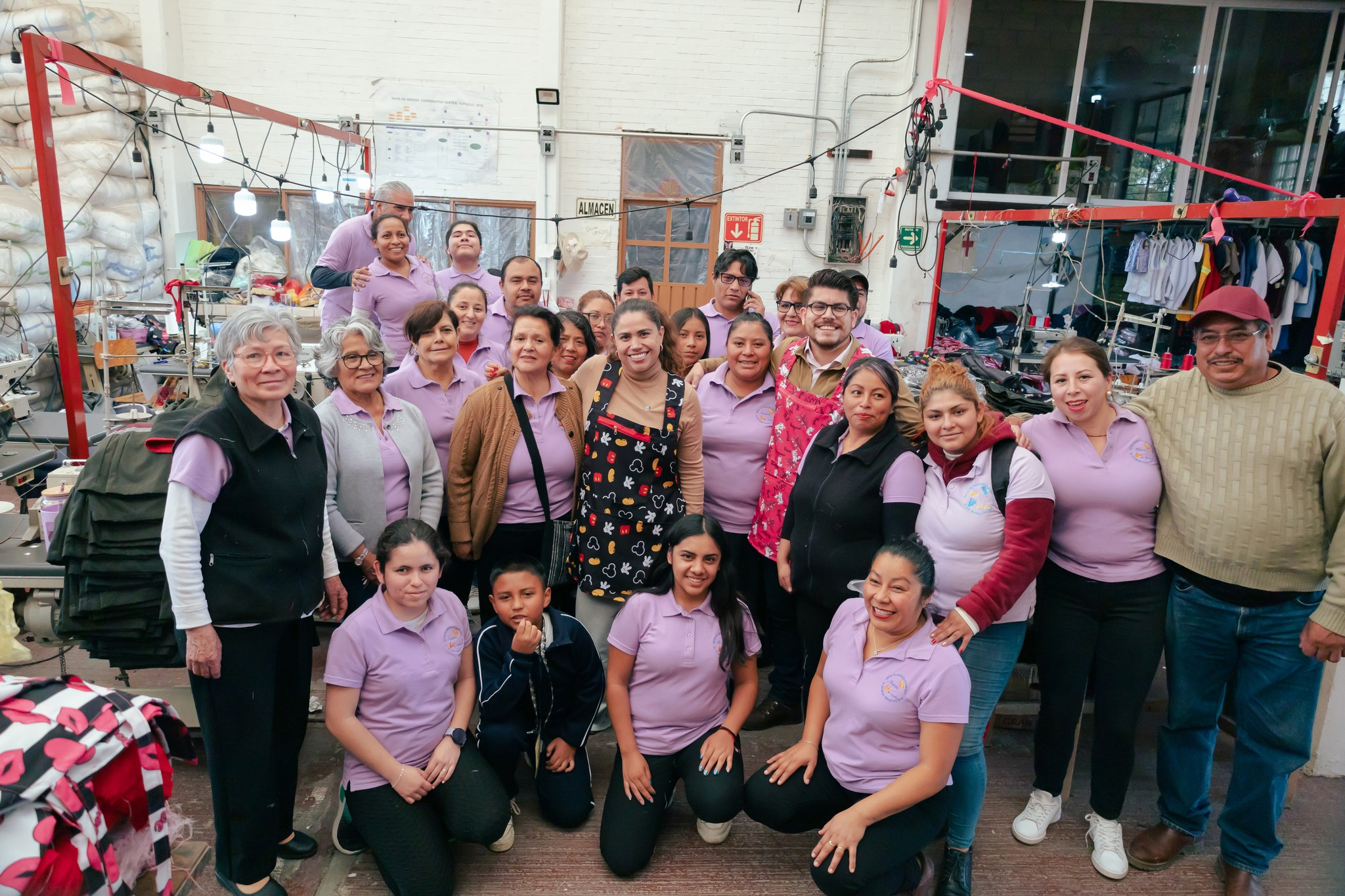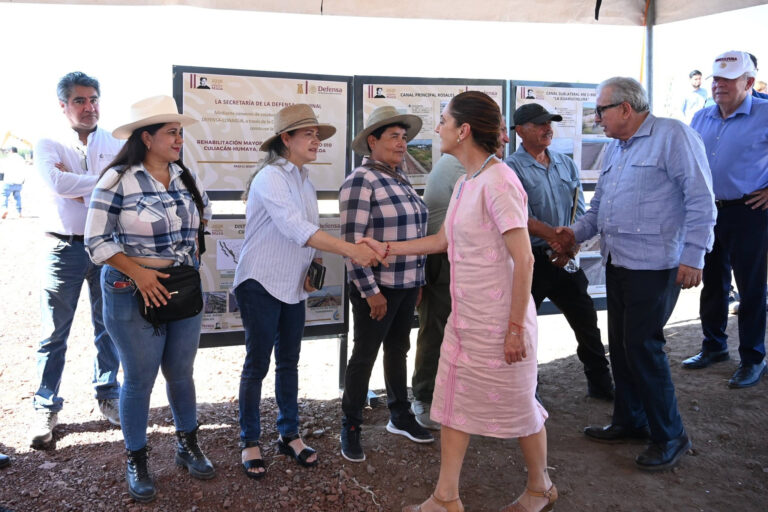Difficulties and Challenges for Mexico’s Social Economy
This article by Dr. Juan José Rojas Herrera originally appeared in the July 3, 2025 edition of La Coperacha. The views expressed in this article are the author’s own and do not necessarily reflect those of the Mexico Solidarity Project.
The earliest origins of Mexico’s social economy (SE) date back to the mid-19th century, when mutual societies emerged and multiplied. Towards the end of that same century, cooperative societies emerged, and throughout the 20th century, new organizations joined this broad and diverse social and economic movement.
Today, the social economy is made up of legally constituted associations and companies, which may adopt the various associative forms indicated in Article 4 of the Law on Social and Solidarity Economy, that is: ejidos (common lands), agrarian communities, social solidarity societies, cooperative societies, companies that belong majority or exclusively to workers, and in general, all forms of social organization for the production, distribution, and consumption of socially necessary goods and services.
According to the 2013 diagnostic study of the SE carried out by the National Institute of the Social Economy (INAES), in that year there were 60,943 SE organizations in the country, of which more than half were agrarian, among which the existence of 29,000 ejidos and 2,000 communities stands out, as well as nearly 2,000 Social Solidarity Societies. For their part, cooperatives, according to data from the National Statistical Directory of Economic Units (DENUE) of the National Institute of Statistics and Geography (INEGI) as of April 2020 and the database of the National Single Registry of Savings and Loan Cooperatives (RENSOCAP), updated to December 2019, reached 18,038, which group together 8,875,186 cooperative members.
In rural areas, the economic importance of the ES is confirmed by its productive potential, since as indicated in the 2013-2017 Compendium of Basic Information on the Social Economy in Mexico , published by INAES in 2017, the ES organizations own: more than 100 million hectares (51% of the national territory), 80% of forests and jungles and 66% of the country’s coastlines.
Although there are no official data that reflect the total population grouped into the various SE organizations, nor their contribution to the major national and sectoral aggregates of the country’s economy, INEGI has conducted two feasibility studies aimed at developing a satellite account for SE in Mexico. The first was published in 2018, using 2013 as the base year, while the second was released at the end of 2022 and used 2018 as the base year. This provides a time perspective on the performance of SE over the past decade in relation to two indicators: the contribution of SE to GDP and the number of employed and paid personnel in companies in the sector. Regarding the first indicator, the contribution of the SE to the GDP was 1.2% in 2013 and 1.6% in 2018. Regarding the employed and paid personnel in SE companies, in 2013, it reached 1,180,847 people, a number that by 2018 stood at 1,752,000 people, which means that the contribution of the SE to the National EAP was 2.25% in 2013 and by 2018 it increased to 3.14%.

Despite this dynamism and expansion of the social economy in Mexico, by the end of Andrés Manuel López Obrador’s six-year term (2018-2024), federal legislation had not undergone any significant modifications. The few changes that were made were regressive and related to partial amendments to the Law Regulating the Activities of Savings and Loan Cooperatives (LRASCAP), aimed at continuing the process of concentration and purification of the savings and loan cooperative subsector into a few very large associative entities and the exit or merger of smaller or recently created entities.
Regarding public policy to promote higher education, it should be noted that during the aforementioned six-year term, this suffered a serious stagnation, manifested in severe cuts to essential components of any public policy: budget, personnel, and institutional infrastructure. Thus, when legislative paralysis is combined with the dismantling of public policy, we are practically witnessing a process of deinstitutionalization of higher education in Mexico.
Thus, in view of the beginning of the so-called “second level of the fourth transformation”, the main challenge facing Mexico’s social economy is to promote a democratic and participatory re-institutionalization process, the content of which will have to be defined in practice through constructive and proactive dialogue. This requires, in principle, the reactivation of the old spaces that existed for dialogue and co-production of the legal framework and for the design of public policies (the INAES advisory council and the advisory councils of Mexico City and some of its mayoralties) and, of course, the creation of new, broader and more vigorous bodies for interest mediation, possibly even leading to the signing of a public alliance (the signing of a collaboration pact) between the social economy movement and the federal government, with clearly defined and binding responsibilities and commitments.
Such spaces should be the setting for the implementation of innovative, participatory, and democratic processes for the co-production of legislation and public policies at the national, sectoral, and regional levels, involving stakeholders in the higher education sector, as well as other supporting institutions, such as universities or specialized civil society organizations, in all phases of design, implementation, and evaluation.
However, for this dialogue to be fruitful, not only must the government change, but also social economic groups must prepare and fulfill their integral role as an alternative economic movement, keeping in mind that in addition to having a social and economic project, a political and ideological one is also required. Hence the importance of keeping social economy organized and mobilized as a demanding social movement.

Dr. Juan José Rojas Herrera is a researcher at the Autonomous University of Chapingo and a specialist in cooperativism, as well as Coordinator of Graduate Studies in Rural Sociology at the UACh.
-
People’s Mañanera March 2
President Sheinbaum’s daily press conference, with comments on electoral reform, the gradual move to a 40 hour workweek, employment, national security strategy, and once again, the call for peace.
-
Mexican Delegation To Participate in April Global SUMUD Flotilla to Gaza
The aim is to work towards ending the genocide that the Israeli government—with the support of the governments of the EU & the fascist US government—is carrying out against the Palestinian people.
-
Workers Party Claims Sheinbaum Electoral Reform Will Eliminate Party System
The socialist party’s leader recalled the democratic spaces that the left managed to conquer with the 1977 & 1996 reforms, a “fruit of countless struggles, repressions, imprisonments, disappearances and even armed uprisings.”




